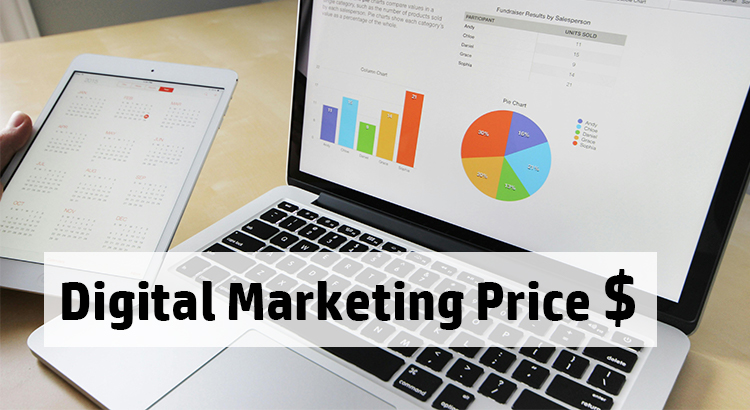Businesses are increasingly depending on digital marketing to reach their target audience and drive growth. However, determining the digital marketing price can be complex, as it encompasses various strategies and platforms. Understanding these costs is crucial for businesses aiming to optimize their marketing budget effectively.
How Much Does Digital Marketing Cost?
Digital marketing costs typically range from an average of $50 to $600 per month. However, the exact cost varies based on the specific services required.
For accurate pricing, it’s best to consult with a digital marketing company tailored to your needs. They can provide a detailed breakdown of costs based on your objectives and desired outcomes.
1. SEO Costs
SEO services typically range from a few hundred to several thousand dollars per month, depending on factors like keyword competitiveness, website complexity, and the scope of the project.
2. Pay-Per-Click (PPC) Costs
PPC advertising costs vary based on factors such as keyword competitiveness, target audience, and ad placement, with budgets ranging from a few hundred to several thousand dollars per month.
3. Social Media Marketing Costs
Social media marketing expenses vary widely depending on platform choice, ad objectives, audience targeting, and ad formats, with monthly budgets typically ranging from a few hundred to several thousand dollars.
4. Content Marketing Costs
Content marketing costs depend on factors like content type, quality, frequency, and distribution channels, with businesses investing anywhere from a few hundred to several thousand dollars per month.
5. Email Marketing Costs
Email marketing expenses include costs for email automation software, list management, and email copywriting, with monthly budgets typically ranging from a few hundred to several thousand dollars.
Related Article: Digital Marketing Essentials: Exploring Key Channels for Optimal Results
Factors Influencing the Digital Marketing Price
Several factors influence the cost of digital marketing services, including:
1. The size and experience of the agency
Larger, more experienced agencies often charge higher rates due to increased overhead costs and a proven track record of delivering results.
2. The scope of services needed
Costs vary depending on the breadth of services required, with specialized services like SEO or social media marketing typically costing less than comprehensive packages covering multiple areas like website design and content marketing.
3. The location of the agency
Agencies in major cities tend to have higher operating costs and may charge more than those in smaller towns due to factors like increased competition and higher living expenses.
4. The level of expertise needed
Specialized expertise in niche areas like e-commerce or healthcare commands higher rates compared to generalist agencies, reflecting the specialized skills and knowledge required.
5. The agency’s pricing model
Different pricing models, such as hourly rates, project-based fees, or monthly retainers, can significantly impact costs, with each model offering its own advantages and considerations in terms of budgeting and flexibility.
Digital Marketing Price Structure
Monthly Digital Marketing Price
Many digital marketing agencies offer monthly retainer packages where clients pay a fixed fee for ongoing services. Monthly pricing structures provide predictability and allow businesses to budget effectively for their marketing efforts.
Hourly Digital Marketing Price
Some digital marketers charge an hourly rate for their services, especially for project-based work or consulting. Hourly rates can vary widely based on the marketer’s experience, expertise, and geographic location.
Project-Based Digital Marketing Cost
For specific projects or campaigns, digital marketers may offer project-based pricing. This pricing model involves a one-time fee for the completion of a particular task or project, such as website redesign, SEO audit, or social media campaign.
Summary of Digital Marketing Price
Knowing the cost of digital marketing requires a comprehensive understanding of the various strategies and factors involved. By learning the factors influencing the pricing, businesses can get effective marketing strategies that align with their goals and budget constraints.


